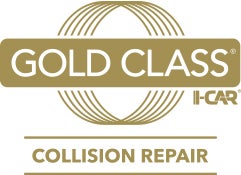Why Buy Used Vehicles?

WHY BUY USED VEHICLES IN CAPE MAY COURT HOUSE, NJ
While buying a new car is enticing, you should take a cold, hard look at how much you could save over time by buying used cars instead. The average person owns 13 cars in a lifetime, each costing an average of $30,000, according to a report by the National Automobile Dealers Association. If each of those cars was 3 years old, instead of new, you could save nearly $130,000 during your lifetime.
UNDERSTANDING DEPRECIATION
The old adage is that a new car loses a lot of its value as you drive it off the lot. This is in fact true when compared to the depreciation of a used vehicle. A used vehicle depreciates at a much lower rate in comparison to its purchase price, likely netting you more of a return in the end when it's time to sell or trade in your current vehicle for the next one.
FORGET THE OLD USED-CAR STIGMAS
It used to be common for people to put down used cars by saying that it was just a way to buy someone else's problems. That's not true anymore. Cars have never been more dependable than they are today. It's not uncommon for some cars to deliver more than 100,000 miles before needing major repairs. All cars require regular maintenance such as oil changes, tire rotation, brake jobs. But you can drive today's cars much farther in between these scheduled maintenance visits. Even tires and brake pads last much longer than before.
USED-CAR ADVANTAGES

We know that cars in general are more dependable than they once were because the quality of automobiles in general has improved over the years. You can often find a late-model used car priced at a very affordable price. Pre-certified dealer programs offer strong warranties, often including the remaining balance of the factory warranty, and the opportunity to purchase an extended warranty.
For all practical purposes, low mileage, late-model used cars are basically new. If you trade your car in every few years the way many people do, you aren't as likely to notice the difference between a used vehicle and a new one because most modern cars will go 100,000 miles or more with few mechanical difficulties. Buying a car that has 40,000 miles on the odometer is likely to result in 60,000 or more miles of trouble-free driving. Some vehicles now offer drive-train warranties that cover the most expensive components of your drive train for 200,000 miles. If savings and reliability aren't the only things holding you back, here are a few other advantages:
More Car for Your Money
This is where shopping for a used car can be a lot more fun than budgeting for a new one. Your hard-earned money can take you a lot further in the used car market. Your budget may afford you only a base trim or entry-level car on the new market, but if you shop used, that same budget can buy you something that is better equipped.
Avalon Certified Options
Avalon Certified used cars provide the peace of mind that your vehicle has gone through a rigorous reconditioning process and is backed by a warranty through a proven national insurance company with a national repair network. All Avalon Certified cars undergo a rigorous 73 point inspection to make sure all mechanical components, such as shocks, struts, belts, and bulbs, are in good working order. For more information, please visit our Avalon Certified Program page.
Variety
Every year, roughly 350 models are offered for sale on the new-car market in the United States. Three hundred fifty models may sound like quite a few, but that number is positively dwarfed by the number of models available on the used-car market. We all have different tastes, and maybe the car you want isn't made anymore. Luckily, the used market has you covered.
Educated Decision
We have the ability to access more information on both new and used cars, than ever before. This gives us the ability to research every aspect of purchasing a new or used vehicle. Knowledge is power and there's just no excuse to be uninformed.
Lower Insurance Costs
Your car's value is the primary item your insurance company considers when determining rates. That makes sense; the more valuable a car, the more money they'll potentially have to shell out in the case of a wreck. It's understandable that a BMW purchased used will cost less to insure than one purchased new, and that all comes back to depreciation. You might not notice the difference between your 3-year-old BMW and a brand new one, but rest assured, your insurance company will.
Cheaper Registration Fees
It depends on where you live, but older cars often cost less to register. Some states vary based on a car's age, weight, or even power. On top of registration, many states charge yearly taxes, which are also often based on a vehicle's age.
Cars Last Longer Now
There's a reason nobody sells cars with 5-digit odometers today. Cars last longer than ever! In terms of mileage, 200,000 may not be the new 100,000, but nonetheless, automakers have taken impressive strides. Used-car shoppers should still be sure to have potential purchases inspected by a mechanic, but often concerns about a used car's remaining lifespan deserve to be put to rest.



